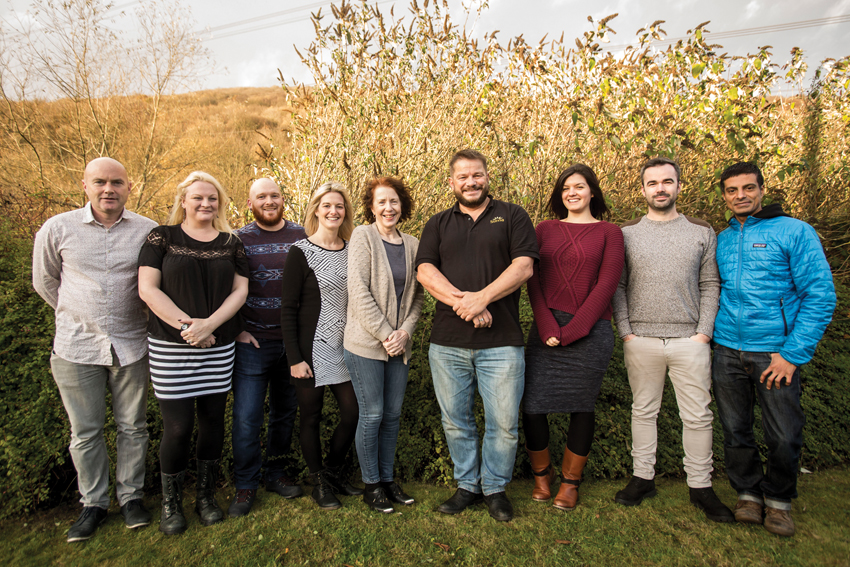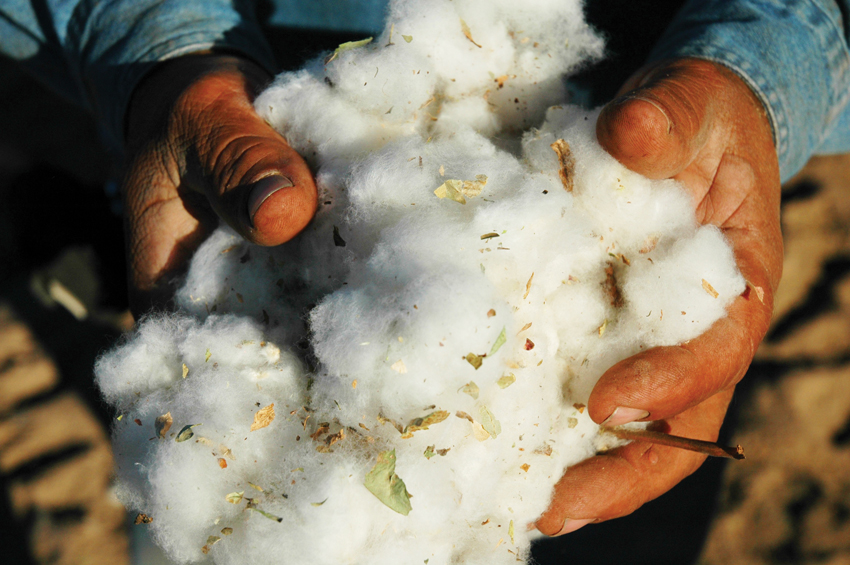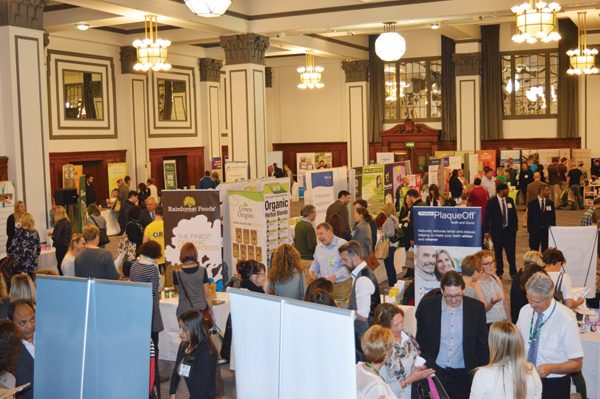
The worker’s co-operative, Suma, has been awarded the prestigious Queen’s Award for Enterprise in the International Trade category.
The Queen’s Awards are amongst the most prestigious awards in the UK, designed to celebrate outstanding achievements in business.
And as its marks 40 years in business in 2017, Suma has been recognised for strong, continued growth in international sales, as well as its co-operative ethos and great employment benefits, such as equal pay for all workers and flexible working.
Suma, an ethical wholefood wholesaler located near Halifax, in West Yorkshire, serves both the UK and export market with a range that extends to more than 7,000 lines of ambient, chilled and frozen goods. With a growing workforce of more than 250 people, the business contributes to local employment in the Calderdale area and brings many benefits to the local economy, such as providing £2,500 worth of food to support the victims of the Boxing Day floods that struck the area on Boxing Day 2015.
Stephen Newton, a member of Suma’s International Sales Team, commented: “We’re really thrilled at the amazing growth of our international sales, and that we can make delicious, ethical vegetarian food available to a wider audience. By winning this award, we’re proud to prove that our local business can hold its own against the big players in international trade.”

A new study has revealed that millions of farmers are not earning enough from conventional cotton farming.
That is according to the Fairtrade Foundation, which has revealed the results of new research, which was designed to provide fashion brands with a useful tool to improve the transparency of cotton sourcing and deepen understanding of their social and environmental responsibilities.
Following the research, the Fairtrade Foundation warned that unless cotton is farmed sustainably, its production leaves a heavy environmental and social toll, which will affect its long-term viability.
The study measured the environmental and social impacts on rural households in India, one of the world’s largest producers of cotton. The valuation tool translates environmental and social values into the language of business and economics. It converts impacts and dependencies into costs and benefits expressed in monetary terms. With an overall indication of cost and benefit, companies can identify trade-offs and synergies in a systematic way.
It found that the combined social and environmental costs of Fairtrade cotton farming are five times lower than that of conventional cotton farming. Data showed that the impacts of Fairtrade farming methods were 97 per cent lower for the social elements and 31 per cent lower for environmental components studied.
The most significant social advantage for Fairtrade farmers was having more income. The research compared community benefits from Fairtrade Premiums, fair wages, income for farmers, engagement of unacceptable labour practices, such as child labour and social cost of overtime. It revealed that Fairtrade cotton farmers tend to have lower social costs, and higher social benefits such as fairer wages and investment in local schools.
Fairtrade cotton performed significantly better than conventional for all environmental KPIs cotton. Areas surveyed included land use, water pollutants, water use, GHG emissions and soil pollutants.
Subindu Garkhel, Cotton Manager at the Fairtrade Foundation, said: “Cotton is an integral part of our lives, from the sheets on our beds to the identity we project through the clothes we wear. Not only that, but cotton also provides livelihoods for millions across the globe. But there is a strong cost for people and planet with cultivating the cotton that goes into our clothes, and our study shows that is markedly higher for conventional cotton farming.
“This research illustrates how Fairtrade empowers farmers to decide their own future, is better for their communities and has a substantially lower footprint than conventional cotton.”

Registration is now open for the Natural Health Trade Summit 2017 in what promises to be its biggest year to date.
The one-day trade event takes place at The Principal Hotel, formerly The Palace Hotel, in Manchester on October 22, and is held in association with the National Association of Health Stores (NAHS).
This year’s event, the third time it has taken place, will be bigger than before, with a newly expanded exhibition space upstairs to cater to demand. This will be in addition to the already established exhibition downstairs.
With more exhibitors than ever, across a range of sectors, including organic food and bodycare, the event will also once again play host to a selection of roundtable events, being held throughout the day on a range of topics.
Sales Director, Ruth Gilmour, commented: “We are proud that the NHT Summit has become an essential date in the industry’s calendar, being the UK’s only event dedicated entirely to the independent health food industry.
“Celebrating all that’s good about the industry, visitors can enjoy roundtable discussions tackling the hottest topics in retailing, over 100 exhibitors showcasing their new products and show-only discounts and plenty of opportunities to meet and network. We are excited to be able to grow the show this year, and we look forward to welcoming you all.”
And take it from retailer, Joanne Hill, from Amaranth, in Stockport, who visited last year and commented: “We are full of ideas after the Natural Health Trade Summit! It’s a lovely place to catch up with suppliers old and new.”
Registration is free at www.nhtsummit.co.uk and we are encouraging all readers of Organic & Natural Business to attend this important annual event. And for retailers looking to make a weekend of it, there are discounted hotel rates at all local hotels; visit www.reservation-highway.co.uk/nht17 to book. If you are planning to stay, we recommend booking your hotel as soon as possible as rooms are limited and sold on a first-come-first-served basis.